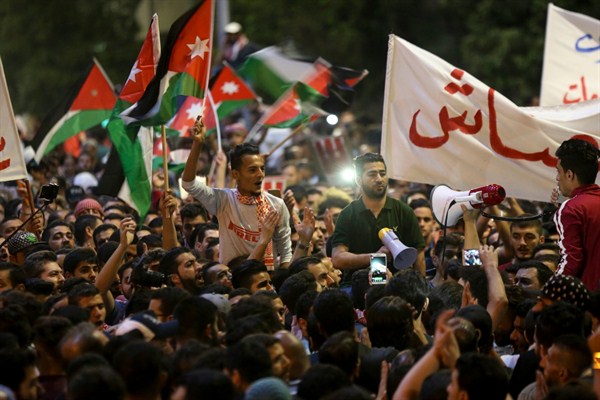At an investment conference in London on the last day of February, Jordan got what appeared to be a much-needed financial boost, with promises of assistance and loans totaling $2 billion. But for a nation whose economic challenges are likely to only intensify, with debt amounting to around 95 percent of its gross domestic product, the pledges were really just a drop in the bucket.
Jordan has built a decades-old reputation as a kingdom of calm in an otherwise restive region. But its long reliance on that image of stability, underwritten by external support, may also be its undoing. Its underdeveloped economy is flailing, leaving an increasingly young population in the lurch, on top of the influx of refugees from neighboring Syria. King Abdullah took this message to London, though he conveyed it to the conference attendees in more subtle terms, declaring that “the world understands the importance of a strong and prosperous Jordan.”
Poor in natural resources and wedged between Iraq, Syria, Israel, the West Bank and Saudi Arabia, Jordan has made diplomacy its main export, positioning itself as a vital Western partner in the Middle East in order to procure economic assistance. Turning itself into a kind of buffer state and key American ally in the region hasn’t come cheap, though. Jordan has had to build up its military and intelligence capabilities to become a counterterrorism partner, absorb refugees to quell regional security concerns, and ensure its own domestic social stability through generous subsidies and steady government jobs, which employ one in three Jordanians. In turn, Jordan has been rewarded with billions in foreign funds from the U.S. and Europe, as well as Israel and Saudi Arabia.

